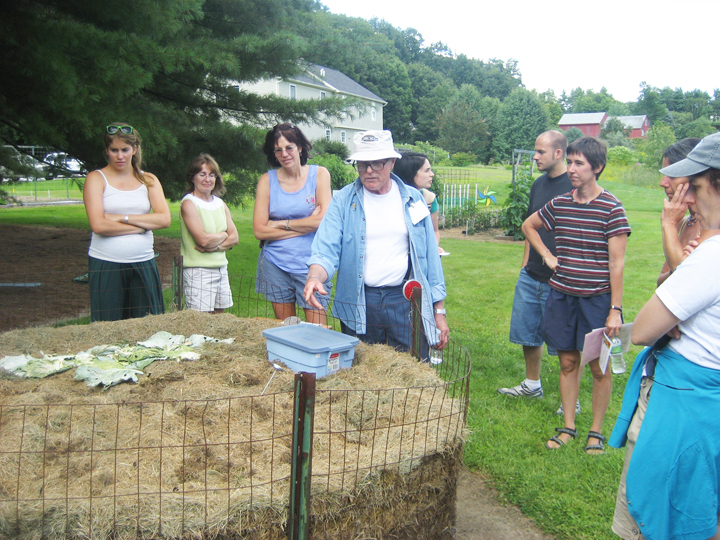After more than 300 people bought tickets to last year’s inaugural Backyard Locavore Tour, the organizers are getting ready for another oversized crowd when the edible garden excursion returns this Saturday. Unlike more typical garden tours, this event highlights plots growing vegetables, fruits and herbs, with a few offering a glimpse of small livestock husbandry and beekeeping.
Hosted by the University of Maine Cooperative Extension, the tour offers access to 12 gardens scattered throughout Cumberland County. Each spot on the tour will have a featured gardening topic, a specific food preservation subject and a preserved food sample with a recipe.
“For some people last year, it was kind of a quest,” said Kathy Savoie, who is an extension educator and the tour’s organizer. “They got all the gardens in. Other people just selected a small handful that matched their interests.”
However ticketholders decide to take the tour, all will come away with a number of new gardening tips and techniques.
One location sure to be a popular stop is Norm Steele’s organic garden in Cumberland, which features raised beds, cold frames, trellises, compost bins, grow lights, chickens and 22 blueberry plants.
“One thing that created a lot of interest last year is my seed tapes,” Steele said.
attaching seeds to paper towels with gelatin, Steele is able to plant crops such as carrots, beets and radishes and never have to thin them.
A master gardener for 22 years, Steele is known for the yearly donations he makes to the Plant-A-Row for the Hungry program, and he’ll gladly talk up the initiative to anyone who’s interested.
He used to donate more than 1,000 pounds of garden produce each year to the program, but now, at age 72, he’s cut his garden space in half and anticipates donating about 500 pounds this year.
Other topics Steele will be available to chat about range from how best to grow garlic to how to fertilizer your garden using nothing but homemade compost. An extension educator will be on hand to talk about making relishes and chutneys, and will be dishing up samples of zucchini relish.
All the preserved food samples come from Savoie and fellow extension staffer Kate McCarty.
“Over the past five years, I’ve seen an increased trend of people wanting to preserve foods,” Savoie said. “I think it’s a renewed interest in doing things for yourself and being self-sufficient. People are not only canning, they’re freezing, drying and learning about root cellaring.”
The preservation topics at each garden cover a lot of ground and will include canning fruit (sample: apple pie filling), freezing vegetables (sample: veggie chili), canning vegetables (sample: beet bruschetta), jams and jellies (sample: low-sugar strawberry jam), herbal vinegars (sample: salad dressing), drying fruit (sample: fruit leathers) and pickles (sample: dilly beans).
The gardens are equally diverse.
At Ten Apple Farm in Gray, participants can check out a small orchard, a herd of dairy goats and a flock of heritage laying hens. The St. Joseph’s College garden will showcase its sheep, chickens, beehives and greenhouse, in addition to the prolific garden that supplies the school’s dining hall.
In South Portland, the Fernandes garden showcases how to create a perennial edible landscape – complete with ducks, rain barrels and an unheated greenhouse – on less than an acre.
All funds raised by the event support the extension’s planned education center at Tidewater Farm in Falmouth, and it’s also one of the stops on the tour. Here, the gardens have yet to be planted, but participants can stroll the fields, watch a honeybee demonstration and learn how to compost with worms.
Also on the tour is the East End Community Garden, where there are 45 plots and breathtaking views of downtown Portland.
As Savoie said, “What’s nice about a community garden is you see many different approaches to gardening in a small space.”
Staff Writer Avery Yale Kamila can be contacted at 791-6297 or at: akamila@pressherald.com
Send questions/comments to the editors.



